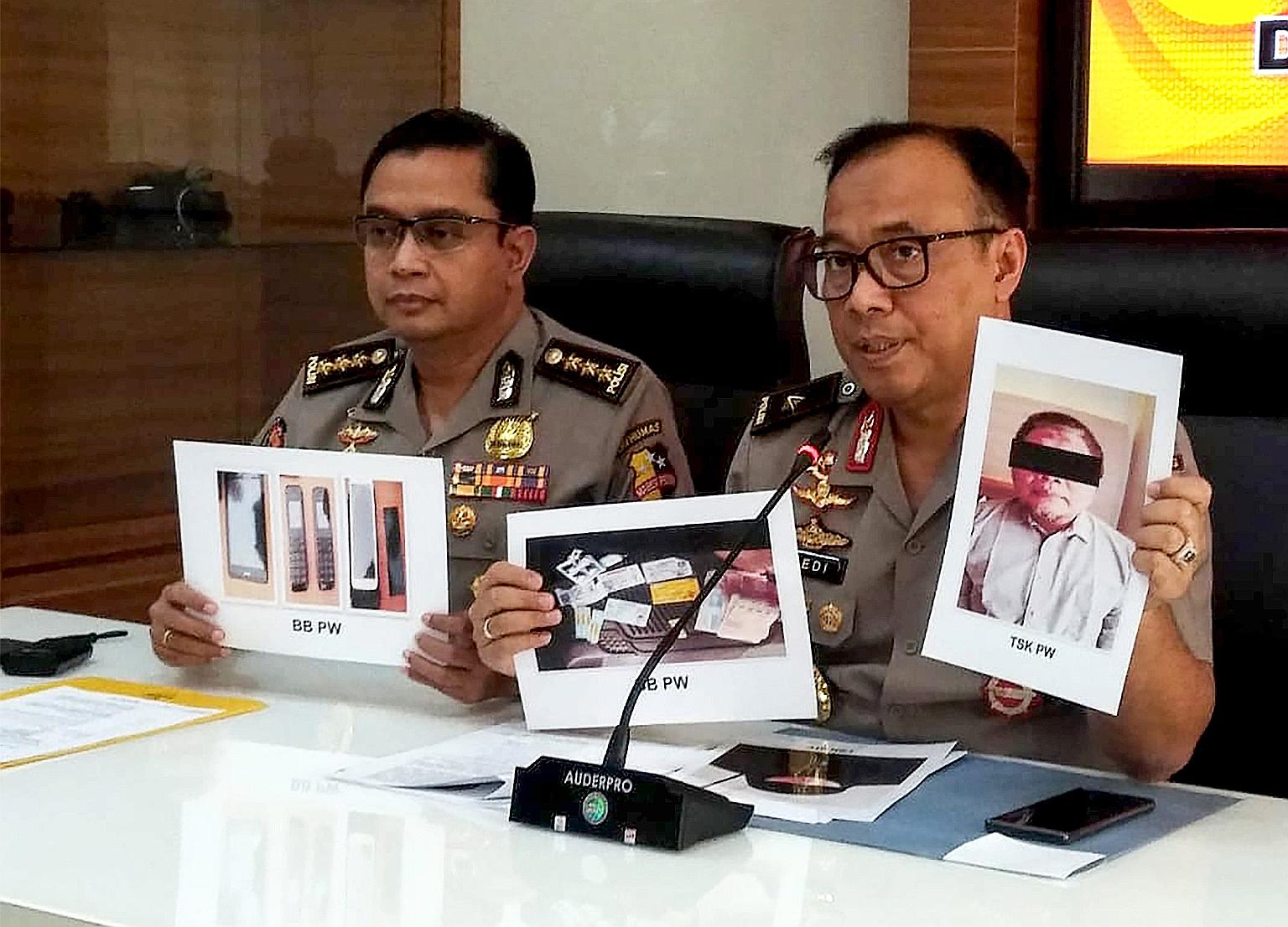Wijayanto and JI: Wily terrorist encouraged avoidance of technology
Sign up now: Get insights on Asia's fast-moving developments

Indonesian police with photos of Para Wijayanto and various seized items at a press conference in Jakarta this month.
PHOTO: AGENCE FRANCE-PRESSE
Para Wijayanto has a degree in civil engineering.
He joined Jemaah Islamiah (JI) in the mid-1990s while he was in Central Java and working at a local packaging company.
In 1998, he became a top leader of the terror network in charge of several major regions in Indonesia, including Java and Sumatra, and was involved in the training as well as recruitment of militants.
In 2000, he joined the Moro Islamic Liberation Front to help in the militant group's fight for a separate Muslim state in the southern Philippines.
Wijayanto has been on the Indonesian police "priority wanted list" since 2003, a year after the country suffered its most deadly terror attack, the Bali bombings which killed over 200 people.
After he was named as emir of a self-declared caliphate in 2009, he restructured JI for a long-haul terror campaign. He sent Indonesian militants to Syria to obtain battle skills which were necessary for the violent campaign he planned to wage at home when they returned.
Wijayanto was a wily terrorist, emphasising to his underlings the need to avoid detection.
He introduced counter-surveillance protocols in the terror network, such as avoiding the use of technology as much as possible.
Most communications were conducted through direct contacts or via messengers, rather than mobile phones.
Codes were used when planning any activity or operations.


